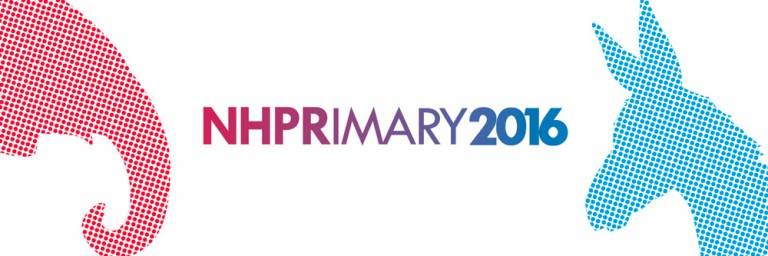
Kelsey Knorp
National Beat Reporter
New Hampshire has spoken, with Vermont Sen. Bernie Sanders and businessman Donald Trump emerging on top of their parties and setting the tone for upcoming primaries across the nation.
Though the presidential nominations won’t be set in stone until late June, analysts and voters alike put disproportionate stock in the New Hampshire race on Tues., Feb. 9 and the preceding Iowa caucuses for their ability to validate — or invalidate — the slew of polls and patterns of favorability assessed by the media in the months leading up to the first votes.
And as it turns out, premonitions prevailed in the Granite State this week. Sanders’ lead over Democratic rival Hillary Clinton widened steadily during the month leading into the primary — from about five to 15 points — and translated to a comfortable win by an even greater margin.
After a humbling loss in Iowa to Sen. Ted Cruz, longtime poll leader Trump blew away his New Hampshire competition with a near 20-point victory in the Republican field. But this early in the game, second place still carries prescient weight as well.
In a tight, four-way contest between Cruz, fellow senator Marco Rubio, Gov. John Kasich and former governor Jeb Bush, Kasich secured the coveted runner-up title by a margin of a few points over his competitors, who each broke into double digits but remained within just a point or two of one another.
California has historically held minimal leverage over presidential nominations as one of the last states to vote on June 7. But that relative disadvantage could still motivate California voters to tune in now, if only to evaluate their general election prospects well in advance.
Clinton’s narrow and poll-defying triumph by just two-tenths of one percent of the Iowan vote lit a fire under her campaign in the week before New Hampshire, and an intermediary debate last Thursday featured some of her most pointed exchanges with Sanders to date.
The two candidates sparred mostly fiercely on international relations, corporate America and what it means to be “progressive” in modern politics. Sanders’ famously radical plan to implement universal healthcare and tuition-free higher education rests on a proposed tax on Wall Street speculation, but according to his opponent, “the numbers just don’t add up.”
Clinton sees Sanders’ agenda as stripping care from those covered by President Obama’s Affordable Care Act, which she’s repeatedly claimed to be the most feasible path to universal healthcare. Analysts at The Washington Post confirmed a subsequent claim that 18 million Americans have so far been covered by the bill, increasing nationwide coverage to about 90 percent.
“I want to build on the progress we’ve made, get from 90 percent coverage to 100 percent coverage,” she said. “A progressive is someone who makes progress. That’s what I intend to do.”
Sanders took more than one opportunity to slam Clinton’s campaign for repeatedly accepting large contributions from Wall Street banks. The Vermont senator, whose campaign has primarily been powered by individual donations, proposes a regulatory system reminiscent of the Glass-Steagall act, which required separation of commercial banking and securities trading until the end of the twentieth century.
“I think if Teddy Roosevelt were alive today … what he would say is: ‘Break them up; they are too powerful economically. They are too powerful politically,’” Sanders said of the banks.
Clinton again upheld a piece of existing legislation: the 2008 Dodd-Frank Act. The complex bill created the Financial Stability Oversight Council to evaluate whether big banks should be broken up if they are “too big to fail,” and tightened restrictions on proprietary trading.
The former secretary of state predictably hit her stride when talk turned to foreign policy. Clinton criticized her opponent’s plan to combat the Islamic State, which may attempt to establish a Saudi Arabia-Iran alliance to help manage Syrian conflict. She implied the maneuver would be a non-starter due to the nations’ hostile relationship, not to mention a waste of time in a such a volatile conflict.
“We cannot be the policeman of the world,” Sanders said.
Republicans at Saturday’s debate wasted little time in delivering final critiques before votes were cast and their then-closely aligned fates determined. Sen. Marco Rubio — the Iowan underdog who nearly tied Trump for second last week — froze under fire from trailing opponent and New Jersey Gov. Chris Christie over what Christie called the senator’s “memorized 25-second speech” charging Obama with full knowledge of his intent to “redefine this country.”
The governor’s mockery did not stop Rubio from reiterating the statement twice more as the debate wore on. A still-escalating feud between Trump and Bush emerged as well, with Bush taking aim at the billionaire’s exploitative use of eminent domain, and Trump earning widespread boos among audience members for shushing his challenger mid-sentence.
Trump tentatively defended his proposed “Muslim ban,” asserting that “we have to have a temporary something, because there’s something going on that’s not good.” Cruz and unlikely second-place challenger Kasich shared their own views on immigration, with varying degrees of friendliness toward undocumented immigrants already living in the United States.
“Federal immigration law provides, if someone is here illegally and is apprehended, they are to be deported,” Cruz said.
The Texas senator also endorsed tripled border control, an “e-verify” system for employers and technology for increased visa oversight. Kasich’s proposal, by contrast, recommends the approximate 11 million undocumented immigrants currently living on U.S. soil “pay some back taxes, pay a fine, never get on the path to citizenship but get legalization,” so long as they have not committed a crime since their entry.
The next chapter in the race for nominations will take place on Sat., Feb. 20, with the Nevada Democratic caucus and the South Carolina Republican primary.










